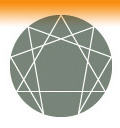What is the Seekers After Truth programme?
The programme’s name “Seekers After Truth” invariably and understandably generates more questions than it answers. Who are these “seekers” and what is this “truth” being sought?
Dr. Naranjo defined himself as a “seeker”, and by this he meant to capture the sense of his reluctance to accept the world at face value, and his drive to see the world more deeply. A seeker is someone who has the gift of curiosity and begins to ask difficult questions about the world and about themselves in the world. Questions whose answers are not easy to come by. Questions that, like Alice in Wonderland, might take them to strange, unexpected places and perspectives. Questions that may require the help of a teacher to find the answers. Answers that can only be known for certain through direct experience. In some senses then, a seeker is not looking for knowledge about the world in the form of transmitted knowledge, rather they are looking for knowledge of the world by way of experience.
A focus on experience is key to understanding the vision and operation of the SAT programme. In general terms the SAT aims to broaden our experience of ourselves, of those around us, to increase our capacity to be directly aware of what is occurring in us and outside us, and of how these two are related. The SAT programme presents us with two complementary paths to unravel experience – the contemplative, and the therapeutic. This meeting of contemplative and therapeutic can be summed up as “understanding by going through”. By inviting us along these paths the SAT provides an opportunity to gain more and more experience of ourselves, increasing our awareness so that we may come closer and closer to answering those most difficult of questions: Who am I? Who are we?
More interestingly, the SAT is concerned to expand our possibilities, and to begin to address the questions of transformation and growth. How might I re-create myself? What would I, in full consciousness, choose for myself now? And how can I diminish the gap between this aspiration and my historical condition?
Such a journey requires a special environment and for this reason the SAT programme has always been conducted as a residential workshop or retreat of up to nine days. It is the ‘retreat’ environment, with its disengagement from the hurly-burly of daily life, that permits an ever more thorough engagement with the self and with others. A week stepping out of our busyness ensures a safe environment in which we can dedicate our time and attention to that which we can easily fail to see, consumed as we are in our daily lives. It is what Dr. Naranjo jokingly describes as an ‘ego grinder’. But this grinding of the ego is just half of the picture, as the retreat can also be a place and time to explore and construct – creatively and deliberately – new ways of being, just as the mythological Pheonix rises again from its own ashes.
For many people, one of the most important experiences that the SAT offers is an opportunity to be among other people in new and rewarding ways. This experience of the group, and the exploration of diversities and similarities that the group makes possible, is without doubt an ideal opportunity to develop our confidence, trust, compassion, honesty and enjoyment within the bounds of our common humanity.
Who is the SAT aimed at?
As a psycho-spiritual endeavour that bridges the contemplative or spiritual and the psychological or therapeutic the SAT programme appears to a wide range of seekers coming for a diversity of reasons. What might unite them is a thirst for greater understanding of themselves, though this understanding will in itself be subsequently channeled in many different directions.
More specifically the SAT programme is of relevance to:
-
Psychotherapists, counsellors, coaches and professionals involved in accompanying others.
-
Enneagram teachers looking to enrich their interpretation of the enneagram and the way it can be used in conjunction with other spiritual or psychotherapeutic practices.
-
Psychologists, academics, doctors, teachers, HR professionals interested in personality types.
-
People involved in meditation, spiritual and movement work looking for a way to integrate spiritual, body and psychological work.
N.B. No level of expertise is required in the Enneagram of Personality for the SAT 1. However, it would be helpful if the person has some prior knowledge of the enneagram, even if this is only from reading a book (e.g. Character and Neurosis by Dr. Naranjo, available on Amazon). A preliminary sketch of the Enneagram is also available on this site. Most important would be an attitude of curiosity and a keenness or openness to work on the self, as opposed to being there for the ‘information’. It is assumed that nobody arriving will have yet achieved ‘sainthood’, so that all of the group will still have ‘stuff’ to explore.
What does the SAT programme offer?
-
A comprehensive investigation of the Enneagram of Personality, a sophisticated system for interpreting, diagnosing and working with personality.
-
Important clues to understanding your personality and for going beyond its limitations by identifying possible directions for growth.
-
An opportunity to attend to the emotional charge of our personal history.
-
An experience of our common humanity that makes authentic, supportive and creative professional and personal relationships easier to establish and sustain.
-
A novel experience of teaching and learning through an integrated and expansive approach, including a comprehensive experience of different approaches to meditation.
-
An opportunity to work with Dr. Naranjo and with his highly experienced team of facilitators that bring a wide range of personal and professional experience to the group.
-
An opportunity to spend time with yourself and with others, away from the pressures of everyday life, and sharing a rare invitation to spend time looking at those three most important questions – Who am I? Who are we? What might I/we become?
